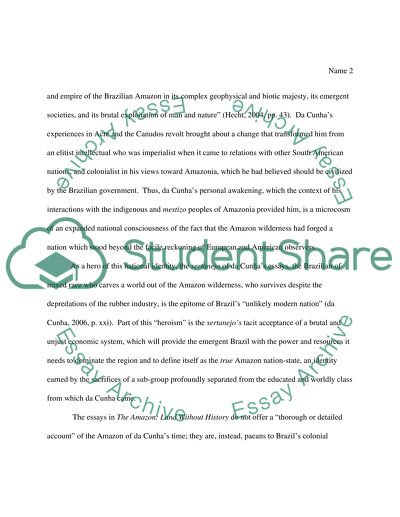Cite this document
(“Identity and Ambiguity: The Evolution of Nationhood in Brazilian Essay”, n.d.)
Retrieved de https://studentshare.org/literature/1443527-brazilian-literature
Retrieved de https://studentshare.org/literature/1443527-brazilian-literature
(Identity and Ambiguity: The Evolution of Nationhood in Brazilian Essay)
https://studentshare.org/literature/1443527-brazilian-literature.
https://studentshare.org/literature/1443527-brazilian-literature.
“Identity and Ambiguity: The Evolution of Nationhood in Brazilian Essay”, n.d. https://studentshare.org/literature/1443527-brazilian-literature.


